Appointment
Are you curious about what dental implants actually look like? If so, you're in the right place! In this article, we will explore the appearance of dental implants and give you a clear understanding of what to expect.
Dental implants are designed to closely mimic the look and feel of natural teeth, providing a seamless and natural-looking smile.
From the crown to the abutment and the titanium implant itself, we will closely examine each component and how they come together to create a beautiful, functional, and long-lasting dental implant.

Dental implants consist of a surgical fixture that is placed into the jawbone and allowed to fuse with the bone over a few months. This implant fixture serves as a root for the artificial tooth.
A common question arises - what do dental implants look like in terms of the implant fixture? Think of it as the foundation of a house, invisible beneath the surface but essential for stability.
The abutment is a connector built on or placed on the top of the dental implant to support the prosthetic crown. It's like a bridge connecting the foundation to the visible structure, ensuring the crown stays firmly in place.
Lastly, the prosthetic crown completes the picture of dental implants. The crown is the part of the implant that looks like a natural tooth.
Crafted to match the color and shape of your natural teeth, it's the aesthetic jewel in the dental implant crown.
Ceramic implants have become a popular choice due to their natural appearance. Imagine wearing a shirt that perfectly matches your skin tone - that's how well ceramic blends with the natural color of your teeth.
Zirconia implants are known for their strength and natural look. What do dental implants look like when made from Zirconia? It's like comparing a diamond to cubic zirconia; hard to tell apart from the real thing.
For those curious about what do dental implants look like when composed of titanium, think of a solid framework. Just as steel beams are used in construction for stability, titanium offers incredible support.

Dental implants need to resemble natural teeth. So, color matching is akin to finding the perfect shade of paint for an artist's canvas; it must blend seamlessly.
The texture and surface finish play a critical role in mimicking natural teeth. Ever touched a sculpture and marveled at the lifelike feel? It’s the same sensation dental professionals aim to recreate.
Visualizing before-and-after cases helps you understand what dental implants look like. It's like a makeover show, revealing the transformation that occurs.
Proper care is essential for maintaining the aesthetics of dental implants. Remember, even a luxury car needs regular maintenance to shine.
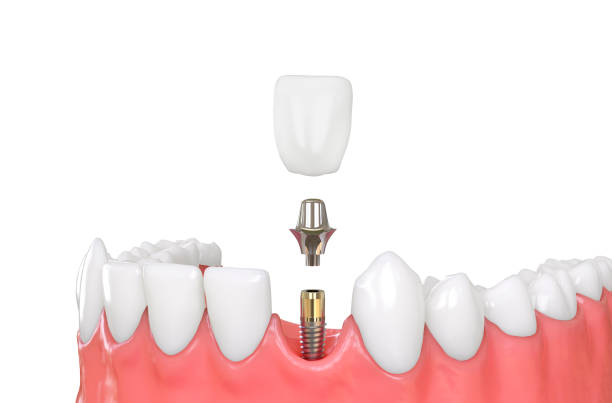
At Al Care Dental, we pride ourselves on understanding the aesthetics of dental implants. What do dental implants look like? We believe they should be a seamless extension of you, enhancing your smile without drawing attention to themselves.
Our team of experienced professionals uses cutting-edge technology and personalized care to create dental implants that fit your unique needs and desires.
Are you ready to transform your smile? Contact Al Care Dental today and discover how our dental implants can create the perfect look for you.
Your journey to a more beautiful, confident smile starts here.

What do dental implants look like? They are a combination of art and science, carefully crafted to blend with natural teeth.
Whether it's the materials used or the techniques applied, dental implants have become an essential aspect of modern dentistry, providing strength, beauty, and functionality.
Dental implants have become one of the most popular and effective solutions When restoring your smile and regaining the confidence to chew, speak, and laugh with ease. If you're considering dental implants, you might wonder, "Who does dental implants?"
In this comprehensive guide, we'll explore the various professionals involved in dental implant procedures, ensuring you make an informed decision about your oral health.
Before diving into the question of who performs dental implant procedures, let's briefly understand what dental implants are.
Dental implants are artificial tooth roots made from biocompatible materials, usually titanium, that are surgically inserted into the jawbone.
They serve as sturdy anchors for replacement teeth, such as crowns, bridges, or dentures, offering a natural and long-lasting solution for those with missing teeth.
Before we explore the specialists responsible for dental implant procedures, it's essential to highlight the advantages of choosing dental implants:
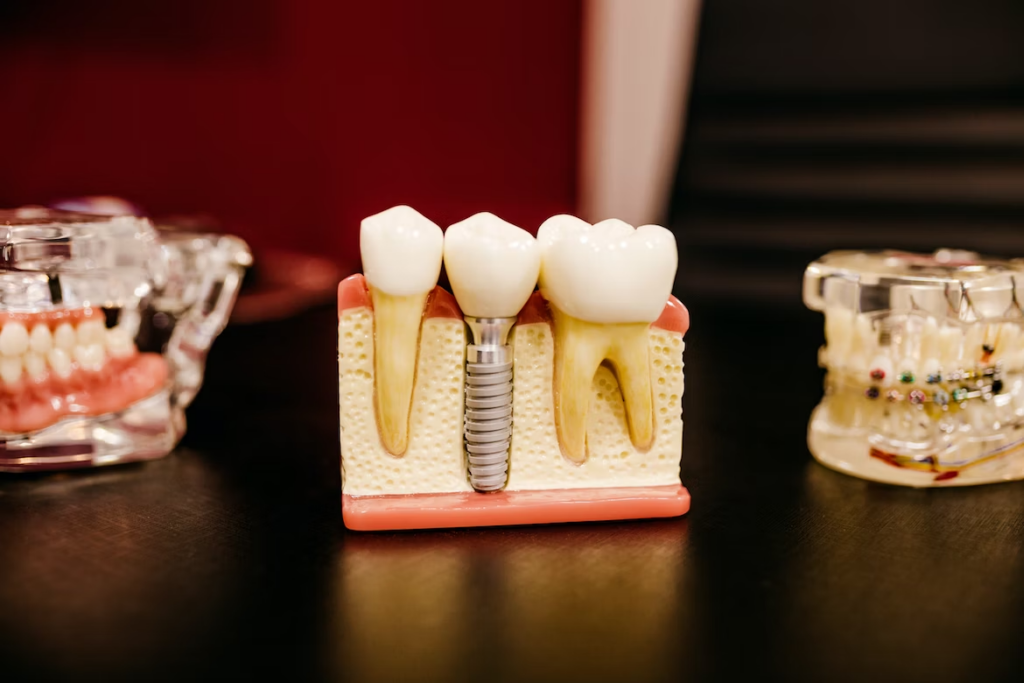
Now, let's answer the fundamental question: Who does dental implants? Dental implant procedures involve a team of skilled professionals working together to ensure successful patient outcomes.
After completing their dental education, general dentists can undergo additional training to specialize in dental implant procedures.
These dentists are proficient in performing straightforward implant cases. If you have a healthy jawbone and straightforward dental implant needs, a dentist specializing in dental implants may be the right choice for you.
For more complex cases or patients with underlying oral health issues, an oral surgeon might be the ideal professional for dental implant procedures.
Oral surgeons are dental specialists who have completed additional years of training in surgical procedures, including dental implant placement.
They are well-equipped to handle complicated cases, such as patients with inadequate jawbone density or those requiring bone grafts.
Periodontists are dentists who specialize in preventing, diagnosing, and treating gum diseases. Given that successful dental implants heavily rely on healthy gums and adequate bone support, periodontists play a crucial role in the dental implant process.
They ensure that the gum tissues and underlying bone are in optimal condition before proceeding with the implant surgery.
When considering dental treatments, it's essential to understand how dental implants compare to other common procedures like veneers, dentures, crowns, and periodontics.
While dental implants and veneers can improve the appearance of your smile, they serve different purposes. Dental implants are a permanent solution to replace missing teeth, while veneers are thin shells placed on the front surface of natural teeth to enhance their appearance.
Dental implants provide structural support and function, while veneers primarily address cosmetic concerns.
Dental implants and dentures are options for replacing missing teeth, but they differ significantly in their stability and longevity. Dental implants are surgically anchored into the jawbone, offering superior stability and preventing bone loss.
Dentures, on the other hand, are removable and may require adhesive for stability. Dental implants are more durable and have a more natural feel compared to dentures.
Dental crowns and dental implants are used for different purposes. Crowns are primarily employed to repair and restore damaged or decayed teeth. They are placed over existing teeth to improve their strength and appearance.
As mentioned earlier, dental implants are replacements for missing teeth, serving as artificial tooth roots to support various dental restorations, including crowns.
While dental implants and periodontics are interconnected, they serve distinct roles. Periodontics is the branch of dentistry that focuses on the health of the gums and supporting structures of the teeth.
Periodontists play a critical role in ensuring the gum tissues and underlying bone are healthy enough to support dental implants. In turn, periodontists frequently use dental implants as a treatment option to replace missing teeth and restore oral function.
Selecting the right professional for your dental implant procedure is vital to achieving the best results. Consider the following factors:
At Al Care Dental, we take immense pride in transforming smiles and improving lives through high-quality dental implant procedures. If you're considering dental implants, we invite you to schedule a consultation with our team of experts.
Regain the joy of a complete smile and experience the confidence that comes with it.
Our team of highly skilled dentists, oral surgeons, and periodontists work collaboratively to provide top-notch dental implant procedures tailored to your unique needs.
With years of experience and a commitment to using state-of-the-art technology, we ensure our patients receive the best care possible. Whether you need a single dental implant or a full-mouth restoration, we are here to help you achieve a radiant smile that lasts a lifetime.
Book an appointment with us, or you can give us a call.
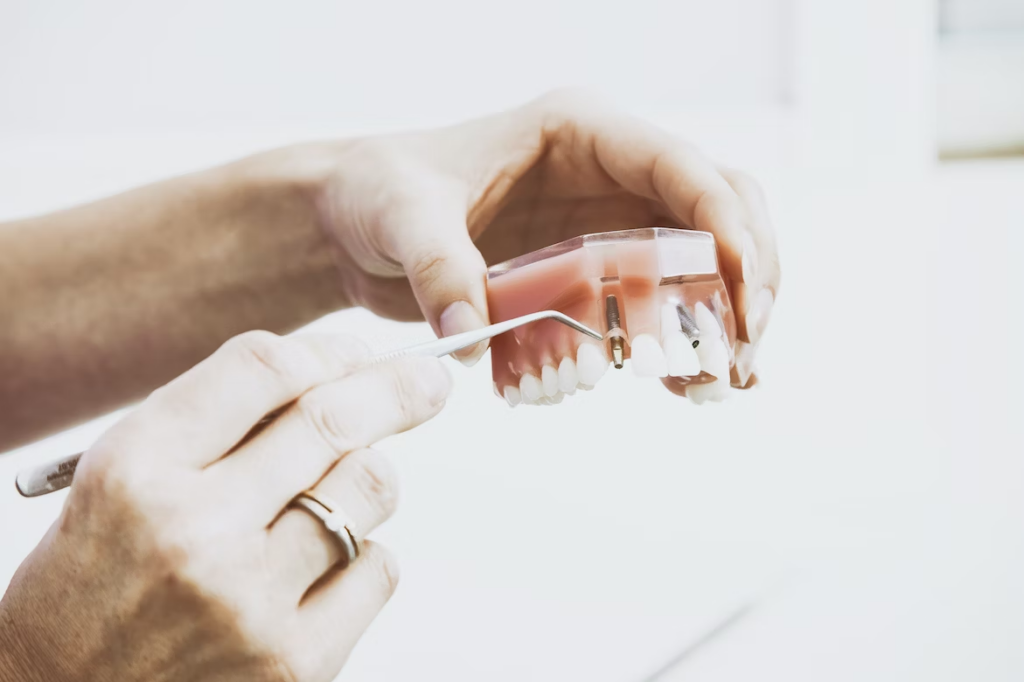
So, the question "Who does dental implants?" encompasses a team of dedicated professionals, including dentists specializing in implants, oral surgeons, and periodontists. These skilled individuals collaborate to provide you with the best possible care and restore your smile with dental implants.
When considering dental treatments, it's essential to compare dental implants to other procedures like veneers, dentures, crowns, and periodontics to decide on the best treatment for your oral health needs.
Prevention is always preferable to treatment when it comes to tooth health. Cavities are one of the most prevalent dental issues that patients confront. But have you ever wondered how long a cavity takes to form?
Cavities are created by the deterioration of the tooth's enamel and, if left untreated, may cause severe pain, sensitivity, and even tooth loss. The rate at which cavities occur is affected by a number of variables, including nutrition, dental hygiene, and heredity.
There are, nevertheless, some broad rules that might assist you in understanding the chronology of cavity creation.
In this post, we'll look at the many phases of cavity creation and how to avoid them in the first place. Keep reading if you're intrigued by cavities and want to keep your teeth healthy and strong!
Dental health is an essential aspect of overall health. It refers to the state of your teeth, gums, and mouth. Proper dental health is essential to maintaining good oral hygiene and preventing dental problems such as cavities, gum disease, and tooth loss.
Maintaining good dental health requires regular dental checkups, proper oral hygiene, a healthy diet, and avoiding bad habits such as smoking.
A cavity is a hole that forms in the tooth as a result of tooth decay. Tooth decay occurs when bacteria in the mouth produce acid that erodes the tooth's enamel.
If left untreated, the decay can progress into the tooth's softer dentin, eventually reaching the pulp, which contains nerves and blood vessels. Once the pulp is infected, it can cause severe pain and may require a root canal or extraction.
Cavity formation is a gradual process that occurs in several stages. Understanding these stages can help you prevent cavities and identify them early. The stages of cavity formation are:
Plaque is a sticky film of bacteria that forms on the teeth. When you eat sugary or starchy foods, the bacteria in plaque produce acid that can erode the tooth's enamel.
If the plaque is not removed through brushing and flossing, it can harden into tartar, which can only be removed by a dentist.
Enamel demineralization occurs when the acid produced by plaque erodes the tooth's enamel. At this stage, the tooth may appear chalky or white, and you may experience sensitivity to hot, cold, or sweet foods and drinks.
If enamel demineralization is left untreated, the decay can progress into the tooth's softer dentin. At this stage, you may experience more severe tooth sensitivity and pain.
If the decay reaches the pulp, it can cause severe toothache, and you may notice pus and swelling around the tooth. At this stage, you may require a root canal or extraction.

Several factors can influence the speed at which cavities form. These include:
Poor oral hygiene can lead to the buildup of plaque and tartar, increasing the risk of cavities. Brushing at least twice a day, flossing daily, and using mouthwash can help prevent cavities.
A diet high in sugar and starch can increase the risk of cavities. Sugary and acidic foods and drinks can also erode the tooth's enamel.
Eating a healthy diet that is low in sugar and starch and high in calcium and vitamin D can help keep your teeth healthy.
Fluoride is a mineral that can strengthen the tooth's enamel and prevent cavities. Using fluoride toothpaste and receiving fluoride treatments from your dentist can help prevent cavities.
Some people may be more prone to cavities due to genetics or underlying health conditions such as dry mouth or acid reflux.
If you have a higher risk of cavities, your dentist may recommend more frequent checkups and preventive treatments.
Preventing cavities is essential to maintaining good dental health. Measures to prevent cavity formation include:
If you do develop a cavity, early detection, and treatment are essential to prevent further damage. Treatment options for cavities include:
If the decay has reached the pulp, you may require a root canal or extraction. A root canal involves removing the infected pulp and filling the tooth. If the tooth cannot be saved, it may need to be extracted.
If the cavity is caught early, it can be treated with a filling. A filling involves removing the decay and filling the hole with a composite material. If the cavity is large or in a visible area, a crown may be necessary to restore the tooth's shape and function.
At Al Care Dental, we are committed to helping you maintain good dental health and prevent cavities. Our experienced team offers a range of preventive and restorative dental services, including checkups, cleanings, fillings, and crowns.
We use the latest technology and techniques to ensure your treatment is comfortable, effective, and long-lasting.
Contact us today to schedule an appointment and take the first step towards a healthier smile.
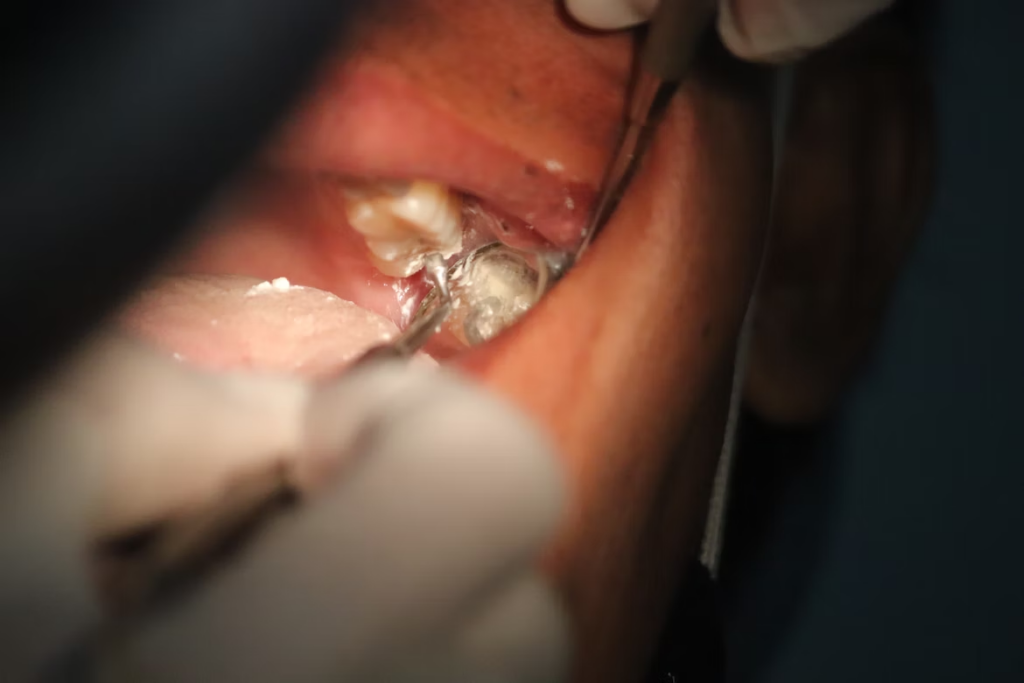
Cavities are a common dental problem that can lead to severe tooth pain and even tooth loss if left untreated. Understanding the stages of cavity formation and the factors that influence their speed can help you prevent cavities and identify them early.
Maintaining good oral hygiene, eating a healthy diet, and visiting the dentist regularly are all essential to preventing cavities and maintaining good dental health.
If you do develop a cavity, early detection, and treatment are essential to prevent further damage and preserve your natural teeth.
With the right preventive and restorative care, you can enjoy a healthy, beautiful smile for years to come.
Regarding dental procedures, durability and longevity are crucial factors to consider. Dental implants have become popular for replacing missing teeth due to their natural appearance, functionality, and long-term benefits.
But how long do dental implants last? In this article, we will explore the lifespan of dental implants, the factors that affect their longevity, and why they are an excellent choice for tooth replacement.
A dental implant is a surgical component that serves as an artificial tooth root. It is typically made of titanium, a biocompatible material that integrates with the jawbone through a process called osseointegration.
This fusion creates a stable dental crown or bridge foundation, resulting in a natural-looking and functional replacement tooth.
Missing teeth not only affect your smile but also impact your overall oral health. Gaps in your teeth can lead to various issues, such as bone loss, shifting of adjacent teeth, and difficulty chewing.
Dental implants offer a reliable solution by replacing the missing tooth or teeth and preventing these complications.
They restore your smile and provide stability and functionality, allowing you to eat, speak, and smile confidently.
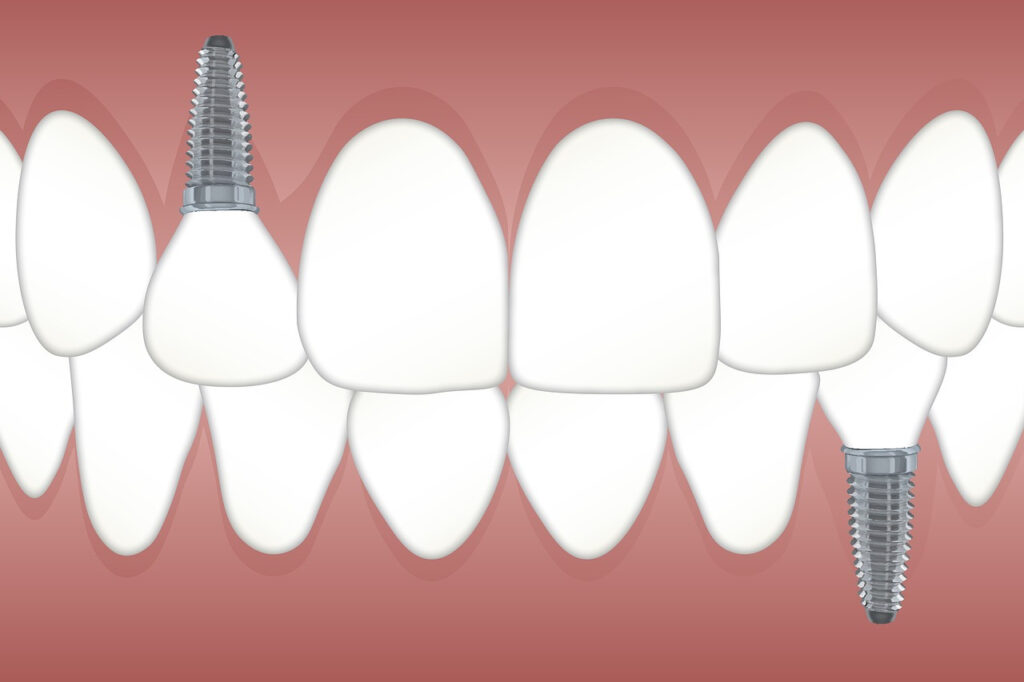
Dental implants offer numerous advantages over other tooth replacement options. Let's take a closer look at some of these benefits:
The process of getting dental implants involves several steps, ensuring a successful and long-lasting outcome. Let's go through the typical steps involved:
If you have a damaged tooth that needs replacement, it will be carefully removed by a dental professional. This step is crucial to ensuring that the implant has a stable foundation for integration.
In some cases, the jawbone may require additional preparation or grafting to provide adequate support for the implant. This step is necessary when the jawbone lacks sufficient density or volume.
Once the jawbone is ready, the dental implant is surgically placed into the bone. The implant is then left to heal and integrate with the surrounding bone through osseointegration.
During the healing process, which can take several months, the bone grows around the implant, securing it firmly in place. This integration ensures the long-term stability and success of the implant.
Several factors can influence the lifespan of dental implants. Understanding these factors and taking appropriate measures can help maximize the longevity of your dental implants.
Dental implants can last long if you take care of your teeth and gums well. Regular cleaning, flossing, and rinsing with an antibacterial mouthwash can avoid gum disease and infection.
Some things that people do, like smoking and drinking too much alcohol, can shorten the life of tooth implants. Especially smoking since it slows healing and makes the implant more likely to fail.
Dental implants can break if the mouth is hurt or if there is trauma to the mouth. It is important to stay away from things that could hurt you, like chewing on hard things or playing contact sports without the right gear.
Some chronic conditions, like diabetes that isn't under control or autoimmune diseases, can affect how well tooth implants heal and how long they last.
It is important to talk to your doctor about your health background so that he or she can decide if dental implants are right for you.
The cost of dental implants can change based on a number of things, such as how many implants you need, whether you need extra treatments like bone grafts, and where the dentist's office is located.
It's important to talk to your doctor to determine how much your case will cost.
Even though dental insurance may not always cover the full cost of dental implants, some plans may cover part of the cost. Check with your insurance company to find out what kinds of benefits you have.
Also, many dental offices have open payment plans that make tooth implants easier to get and less expensive.

Proper maintenance is key to ensuring the longevity of dental implants. Here are some essential steps to keep your implants in optimal condition:
Just like you would with your normal teeth, you should clean your dental implants every day. Use an antibacterial mouthwash and brush your teeth twice a day with a soft-bristled toothbrush. You should also floss between your teeth and implants and use dental floss.
Schedule regular dental check-ups and cleanings with your dentist. During these visits, your dentist can check the state of your dental implants, look for any possible problems, and clean them professionally, which doesn't take long and will help them last longer.
When considering tooth replacement options, it is important to understand how dental implants compare to other alternatives in terms of lifespan. Let's take a brief look at some common dental prosthetics:
If you take good care of your bridge, it should last between 10 and 15 years. In contrast to dental implants, bridges are held up by the healthy teeth next to them, which can cause those teeth to wear down over time.
Every 5 to 7 years, traditional detachable teeth may need to be fixed or replaced. Compared to standard detachable dentures, dentures held in place by implants are more stable and last longer.
Dental veneers are thin shells made of porcelain that cover the front of natural teeth to make them look better. Even though veneers can last between 10 and 15 years, they can't replace lost teeth and don't work as well as dental implants.
Tooth implants could last for the rest of your life with the right care and preservation. They are the most natural in terms of how they look, how they work, and how long they last.
Dental implants are beneficial for replacing missing teeth and can address other dental issues. Here are a few common reasons why you may need a dental implant:
If a tooth is badly rotted or broken because of cavities or gum disease, standard methods may not be able to save it. Getting a dental implant can help solve this issue by having the tooth pulled out and replaced with a dental implant.
Dental implant timing depends on the patient. To avoid bone loss and other oral health issues, receive an implant quickly after tooth loss.
Your dentist will assess your circumstances and select the best implant placement time.
If you are considering dental implants, Al Care Dental is here to provide comprehensive and personalized care. Our experienced team of dentists will assess your oral health, discuss your treatment options, and guide you through the implant process.
With our state-of-the-art facilities and commitment to patient satisfaction, you can trust Al Care Dental for exceptional dental implant services.
Call us today to schedule your consultation and take the first step toward a confident and healthy smile.

Dental implants replace lost teeth permanently. Dental implants may last a lifetime and improve function and appearance with appropriate care.
Oral hygiene, lifestyle, injuries, and medical factors might affect dental implant longevity. Understanding these elements and practicing correct care helps prolong dental implants.
At Al Care Dental, we understand the importance of dental cleanings in maintaining optimal oral health. Regular dental cleanings are vital in preventing dental problems and ensuring a bright and healthy smile.
One common question that patients often ask is, "How long does a dental cleaning take?" In this article, we'll explore the answer to that question and provide you with valuable information about dental cleanings.
Before we delve into the duration of a dental cleaning, let's first understand what it entails.
A dental cleaning, also known as dental prophylaxis, is a professional procedure performed by a dental hygienist or dentist to remove plaque, tartar, and stains from your teeth. It involves a series of steps to ensure thorough cleaning and polishing of your teeth.
Dental cleanings are essential for maintaining good oral health. Even with regular brushing and flossing, plaque and tartar can accumulate on your teeth over time, leading to tooth decay, gum disease, and other dental problems.
By having regular dental cleanings, you can prevent these issues and keep your smile healthy and beautiful.

Having your teeth professionally cleaned offers numerous benefits for your oral health. Here are some key advantages:
Now that we understand the importance of dental cleanings let's take a closer look at the typical steps involved in a dental cleaning:
Before the actual cleaning begins, dental X-rays may be taken to get a comprehensive view of your oral health. X-rays can reveal hidden dental issues, such as cavities between teeth, impacted wisdom teeth, or bone loss.
Scaling is the process of removing plaque and tartar from the surfaces of your teeth and along the gumline. The dental hygienist uses specialized instruments to scrape away these deposits.
After scaling, your teeth are polished to remove any remaining stains or plaque. The dental professional uses a rotating brush and a mildly abrasive paste to achieve a smooth and polished surface.
Flossing is an important step in dental cleanings. The dental professional carefully flosses between your teeth and along the gumline to remove any remaining debris or plaque. This helps ensure that all areas are clean and free from bacteria.
While dental cleanings are typically efficient, certain factors can contribute to a longer cleaning session. Here are a few reasons why a dental cleaning might take longer than usual:
Plaque buildup is one of the primary reasons why a dental cleaning may take longer than usual. If you haven't had regular dental cleanings or if you have poor oral hygiene habits, plaque can accumulate on your teeth and harden into tartar.
Tartar is more difficult to remove and requires additional time and effort during the cleaning process. The dental professional will carefully and thoroughly remove the tartar to ensure your teeth and gums are clean and healthy.
Dental cleaning may require more time if you have gum disease or periodontal issues. Gum disease can cause pockets to form between your gums and teeth, which can harbor bacteria and plaque.
The dental professional will need to spend extra time cleaning these pockets and ensuring that your gums are healthy. Treating and managing periodontal issues is crucial for maintaining good oral health and preventing further damage to your gums and teeth.
If you have cavities or other dental concerns, the dental professional may need to address them during your cleaning appointment. This could involve filling cavities, repairing dental restorations, or addressing other dental issues requiring attention.
Taking care of these concerns alongside the regular cleaning process may extend the overall duration of the appointment.
Regular dental cleanings are typically recommended every six months. However, the frequency may vary depending on your oral health condition and your dentist's recommendations.
Some individuals with specific oral health issues may require more frequent cleanings, while others with excellent oral hygiene may need them less frequently. It's important to consult with your dentist to determine the ideal cleaning schedule for your specific needs.
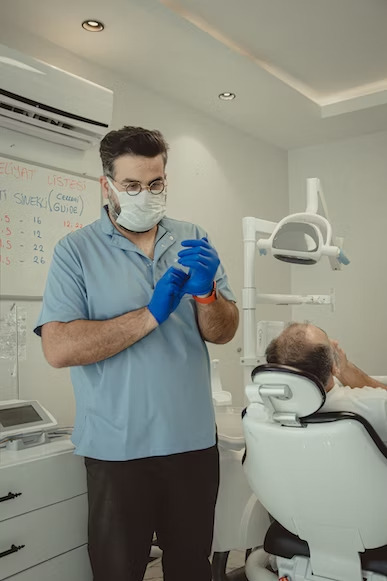
At Al Care Dental, we prioritize your oral health and provide professional and comprehensive dental cleanings.
Our experienced dental team utilizes advanced techniques and equipment to ensure a thorough and efficient cleaning process. We understand that each patient is unique, and we tailor our approach to address your specific oral health needs and concerns.
You can expect a friendly and comfortable environment during your dental cleaning at Al Care Dental. Our dental professionals will guide you through each step of the process, ensuring your understanding and comfort throughout the appointment.
We are dedicated to delivering exceptional care and helping you maintain a healthy and beautiful smile.
Here are answers to some frequently asked questions about dental cleanings:
The duration of a dental cleaning can vary depending on various factors, such as the amount of plaque and tartar buildup, the presence of any dental concerns, and the overall oral health condition.
A dental cleaning appointment can take between 30 minutes and an hour. However, more extensive cleanings may require additional time.
Dental cleanings are typically not painful. However, some individuals may experience minor discomfort or sensitivity during certain parts of the cleaning process, such as scaling or gum probing.
The dental professional will take measures to ensure your comfort, such as using numbing agents or adjusting the cleaning technique. If you have any concerns about pain or sensitivity, be sure to communicate with your dental professional.

Regular dental cleanings are an integral part of maintaining optimal oral health. Not only do they remove plaque, tartar, and stains from your teeth, but they also help prevent tooth decay, gum disease, and other dental issues.
The duration of a dental cleaning can vary depending on individual factors such as oral health conditions, plaque buildup, and the need for additional treatments. Remember to schedule regular dental cleanings according to your dentist's recommendations to maintain a healthy smile and prevent dental problems.
To experience professional dental cleanings and comprehensive oral care, we invite you to visit Al Care Dental. Our skilled dental team is dedicated to providing top-notch dental services in a warm and friendly environment.
Contact us today and schedule your dental cleaning appointment. Take the first step towards a healthier and more beautiful smile.
Are you considering improving your smile with veneers but are still determining their lifespan? Veneers are a popular cosmetic dental solution that can improve the appearance of your teeth and boost your confidence. However, it's essential to understand their lifespan and how to care for them to ensure they last as long as possible.
In this article, we'll explore the factors that can affect the lifespan of veneers, signs that they need replacement, maintenance tips, and alternatives to veneers. We'll also discuss finding a reputable cosmetic dentist and cost considerations.
So, whether you're considering veneers or already have them, read on to learn more about their lifespan and how to keep your smile bright.

One of the most common questions about veneers is how long they will last. The answer to this question depends on various factors, such as the material the veneers are made from, how well they're maintained, and the individual's oral hygiene habits.
Generally, veneers can last for a long time, ranging from 7 to 20 years, depending on the above-mentioned factors.
Porcelain veneers are known to last longer than composite veneers as they're more durable and resistant to stains. However, with proper care, both types can last for a long time.
Several factors can affect the lifespan of veneers, including:
As mentioned earlier, the material the veneers are made from can affect their lifespan. Porcelain veneers are more durable and resistant to wear and tear than composite veneers. They're also more stain-resistant and maintain their color better than composite veneers.
Maintaining good oral hygiene is essential for the longevity of veneers. Poor oral hygiene can lead to gum disease, which can cause the veneers to loosen and fall off. Regular brushing, flossing, and dental checkups are crucial to maintaining good oral hygiene.
Teeth grinding, also known as bruxism, can cause damage to veneers. If you grind your teeth, your dentist may recommend a nightguard to protect your veneers while you sleep.
Trauma to the mouth, such as a fall or impact, can cause the veneers to chip, crack, or fall off. It's essential to protect your teeth and veneers during physical activities, such as sports, to avoid damage.
Certain foods and drinks, such as coffee, tea, and red wine, can stain veneers. It's important to limit the consumption of these foods and drinks to maintain the color of your veneers.
Even with proper care, veneers may need to be replaced after a certain period. Here are some signs that your veneers may need replacement:
If you notice any of these signs, consult your dentist to determine if your veneers need to be replaced.
To ensure the longevity of your veneers, follow these maintenance tips:
As mentioned earlier, good oral hygiene is crucial for the longevity of veneers. Brush your teeth twice daily, floss daily, and visit your dentist regularly for checkups and cleanings.
If you grind your teeth, wear a nightguard to protect your veneers while you sleep. Your dentist can recommend a nightguard that's custom-fit for your mouth.
Avoid biting hard objects, such as pencils or ice, and protect your teeth with a mouthguard during physical activities, such as sports.
Limit the consumption of foods and drinks that can stain your veneers, such as coffee, tea, and red wine. Rinse your mouth with water after consuming these foods and drinks.
If you have gum disease, treat it immediately to prevent damage to your veneers.
If you're not a suitable candidate for veneers or prefer an alternative cosmetic dental solution, here are some options:
Teeth whitening can improve the appearance of discolored or stained teeth. This treatment uses a bleaching agent to remove stains and restore the natural color of your teeth.
Dental bonding is a procedure that uses a tooth-colored resin to improve the appearance of chipped, cracked, or discolored teeth. This treatment is less expensive than veneers but may only last for a short time.
Dental crowns are prosthetic devices that cover the entire surface of a tooth to improve its appearance and function. This treatment is more invasive than veneers but can last longer.
When considering veneers, finding a reputable cosmetic dentist with experience in this treatment is crucial. Here are some tips for finding the right dentist:
The cost of veneers varies depending on several factors, such as the material, the number of veneers needed, and the location of the dental practice. On average, veneers range from $800 to $2,500 per tooth.
It's important to consider the cost of replacements when getting veneers. While veneers can last a long time, they may need to be replaced after a certain period of time. Therefore, it's essential to factor in the cost of replacements when budgeting for veneers.
Al Care Dental is a friendly, joy-filled general and cosmetic dental practice in Leduc, Alberta. We provide a full range of services and offer evening and weekend hours.
When you meet with the dentist for the first time, it is always good to introduce yourself and tell them why you are there. Be honest about any concerns that you have about your teeth. This will help the dentist work on keeping your teeth healthy and strong.
If you are nervous about visiting a dentist, do not worry. When you are at Al Care Dental Clinic, we take care of your needs so that you can sit back and enjoy your treats.
We look forward to giving you the best smile in town, so book an appointment with us now! For more information about our office, click here.
If you have any questions, do not hesitate to contact us at (780) 986-9857 or email us at [email protected].
Understanding the lifespan of veneers and how to care for them is crucial for maintaining a beautiful smile. While veneers can last for a long time, they may need to be replaced after a certain period.
If you're considering veneers, consult a reputable cosmetic dentist to determine if you're a suitable candidate and to discuss your options. Remember to maintain good oral hygiene, avoid teeth grinding, protect your teeth, watch your diet, and treat gum disease to ensure the longevity of your veneers.
A beautiful smile is one of a person's most attractive features. However, only some are blessed with a set of perfect teeth.
For those with chipped, broken, or discolored front teeth, there are two popular cosmetic dental options: crowns and veneers. Both of these procedures aim to enhance the appearance of your front teeth, but they differ in how they are applied, their durability, and their cost.
Choosing between the two can be a daunting task, especially if you need to become more familiar with the pros and cons of each. In this article, we will explore the differences between front tooth crowns and veneers and help you decide which is best suited.
So, if you want to transform your smile, keep reading to learn everything you need about front teeth crowns vs. veneers.
Front tooth crowns, or dental caps, are custom-made dental restorations placed over the entire tooth. They are designed to cover and protect the tooth while improving its appearance.
Crowns are often used to repair teeth that are severely damaged, decayed, or misshapen. They can also cover teeth undergoing root canal treatment or replace a primarily failed filling.
Several types of crowns are available, including those made of porcelain, ceramic, metal, or a combination of materials.
Porcelain and ceramic crowns are the most popular options for front teeth because they can be color-matched to your natural teeth, giving you a seamless, natural-looking smile. On the other hand, metal crowns are more robust and durable but are not as aesthetically pleasing and are often used for back teeth.
Front tooth crowns are typically applied in two visits to the dentist. During the first visit, the dentist will prepare the tooth by removing any decay or damage and shaping it to fit the crown.
They will then take an impression of your tooth and send it to a dental lab to create your custom crown. In the meantime, you will be fitted with a temporary crown. During the second visit, the temporary crown will be removed, and the custom crown will be cemented.
Veneers are thin, custom-made shells placed over the tooth's front surface to improve its appearance. They are designed to cover up imperfections, such as chips, cracks, stains, and gaps between teeth. Veneers are usually made from porcelain or composite resin, which can be color-matched to your natural teeth.
Unlike crowns, veneers are purely cosmetic dental procedures not used to repair damaged teeth. They are ideal for those with minor cosmetic issues with their front teeth and who want to improve the overall appearance of their smile.
Veneers often create a more uniform, straighter, and brighter smile.
While both front tooth crowns and veneers are designed to improve the appearance of your smile, they differ in several ways. The main differences between the two are:
Crowns cover the entire tooth, while veneers only cover the front surface of the tooth.
Crowns are thicker than veneers, meaning more of the natural tooth must be removed during preparation.
Crowns provide more structural support to the tooth than veneers and can be used to repair damaged teeth. Veneers are purely cosmetic and are not used to repair damaged teeth.
Crowns are more durable than veneers and can last up to 15 years or more with proper care. Veneers are less durable and typically last between 5 and 10 years.
Crowns are generally more expensive than veneers.
Front tooth crowns have several advantages and disadvantages that you should consider before deciding if they are suitable for you.
Veneers also have several advantages and disadvantages that you should consider before deciding if they are suitable for you.
When deciding between front tooth crowns and veneers, there are several factors that you should consider, including:
Discussing these factors with your dentist to determine which option is best for your needs is essential.
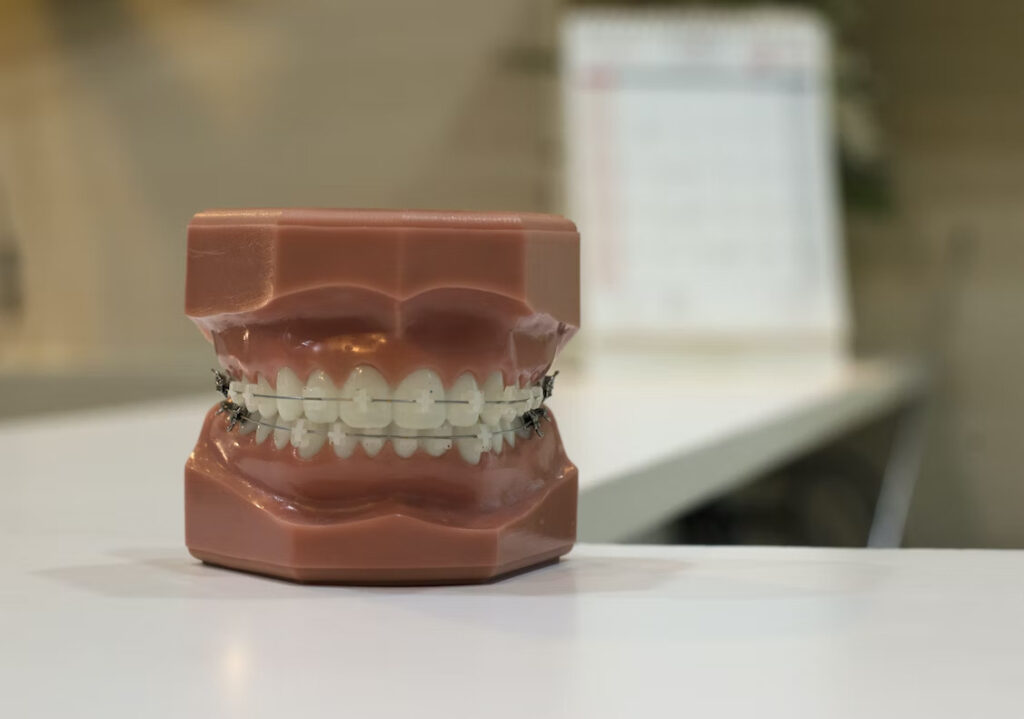
Practicing good oral hygiene is vital to maintain the longevity of your front teeth crowns and veneers. This includes brushing and flossing regularly and visiting your dentist for regular check-ups and cleanings.
It's also important to avoid chewing on hard objects, such as ice, and to refrain from using your teeth as tools to open packages or bottles.
Crowns and veneers may require additional maintenance, such as avoiding certain foods and drinks that can cause staining and using a nightguard if you grind your teeth at night.
It is essential to follow your dentist's recommendations for properly maintaining your crowns and veneers to ensure their longevity.
Al Care Dental is a friendly, joy-filled general and cosmetic dental practice in Leduc, Alberta. We provide a full range of services and offer evening and weekend hours.
When you meet with the dentist for the first time, it is always good to introduce yourself and tell them why you are there. Be honest about any concerns that you have about your teeth. This will help the dentist work on keeping your teeth healthy and strong.
If you are nervous about visiting a dentist, do not worry. When you are at Al Care Dental Clinic, we take care of your needs so that you can sit back and enjoy your treats.
We look forward to giving you the best smile in town, so book an appointment with us now! For more information about our office, click here.
If you have any questions, do not hesitate to contact us at (780) 986-9857 or email us at [email protected].
Choosing between front tooth crowns and veneers can be difficult, but understanding the differences and considering your needs can help make the decision easier.
Crowns offer superior protection and support for damaged teeth, while veneers are a more affordable option that can give you a brighter, more uniform smile.
Ultimately, the best option for your smile makeover will depend on the extent of the damage to your teeth, your desired outcome, and your dentist's recommendation.
By discussing these factors with your dentist and practicing good oral hygiene, you can achieve a beautiful, confident smile that lasts a lifetime.
Cavities are decayed areas in your teeth caused by bacteria that build up in your mouth. They are something that almost everyone will experience at some point in their life.
They can range from feeling slight discomfort to causing immense pain. So what does a cavity feel like?
It can be challenging to pinpoint, as the feeling can vary depending on the damage's severity.
This article will provide an overview of what a cavity feels like and the symptoms, causes, prevention, treatments, and home remedies for cavities.

A cavity is a small hole in your tooth caused by tooth decay. It results from bacteria that has built up in your mouth and started eating away at your tooth enamel.
This can lead to various symptoms, from mild discomfort to immense pain. Cavities can be treated by your dentist or through home remedies, depending on the severity of the damage.
Cavities form when bacteria in your mouth break down the enamel on your teeth. This bacteria can come from various sources, including food, drinks, and even saliva.
As the bacteria builds up, it creates an acidic environment in your mouth, which can weaken the enamel and cause it to break down. Over time, this can lead to cavities.
Generally, a cavity will feel like a dull ache when eating or drinking something cold or sweet and can become more painful as the cavity worsens. In addition, the area around the cavity may be tender to the touch. If the cavity is more severe, it may cause sharp pains lasting for a few seconds or longer.
The feeling of a cavity can vary from person to person, as some may only experience mild discomfort while others may experience intense pain. It is essential to visit your dentist if you suspect you have a cavity, as they can diagnose the problem and provide suitable treatment accurately.
In addition to feeling uncomfortable, there is a range of other symptoms that may indicate a cavity. These include:
If you experience any of these symptoms, it is essential to visit your dentist as soon as possible to prevent further damage.
The leading cause of cavities is poor oral hygiene. This can include not brushing your teeth regularly, flossing, or using mouthwash. Other factors that can increase your risk of developing a cavity include:
Sugar is what the bacteria in your mouth love to feed on. Make sure to limit your sugar intake and brush thoroughly!
It’s essential that you visit your dentist twice a year to have a teeth cleaning and exam so that they can see any potential issues.
Certain medications can cause a dry mouth and make it easier for cavities to form.
The best way to prevent cavities is to practice good oral hygiene. This includes brushing your teeth for two minutes twice a day, flossing at least once daily, and using mouthwash.
It is also essential to visit your dentist for regular checkups to catch any problems early.
In addition, it is essential to limit your intake of sugary or acidic foods and drinks. This will help reduce the bacteria in your mouth, reducing your risk of developing a cavity.
If you have a cavity, your dentist can provide suitable treatment. This may include filling the cavity, applying a crown, or, in more severe cases, a root canal.
Depending on the severity of the damage, your dentist may also recommend a fluoride treatment to help strengthen your teeth.
In some cases, your dentist may recommend a dental sealant. This thin plastic coating is applied to the tooth's surface and helps prevent bacteria from entering the cavity and causing further damage.
To keep your teeth and gums healthy, it is essential to brush your teeth at least twice a day and floss at least once a day.
It is also essential to use fluoride toothpaste and mouthwash to help keep your teeth and gums healthy.
In addition, it is essential to visit your dentist for regular check-ups. This will help to catch any problems early and allow your dentist to provide suitable treatment.
Al Care Dental is a friendly, joy-filled general and cosmetic dental practice in Leduc, Alberta. We provide a full range of services and offer evening and weekend hours.
When you meet with the dentist for the first time, it is always good to introduce yourself and tell them why you are there. Be honest about any concerns that you have about your teeth. This will help the dentist work on keeping your teeth healthy and strong.
If you are nervous about visiting a dentist, do not worry. When you are at Al Care Dental Clinic, we take care of your needs so that you can sit back and enjoy your treats.
We look forward to giving you the best smile in town, so book an appointment with us now! For more information about our office, click here.
If you have any questions, do not hesitate to contact us at (780) 986-9857 or email us at [email protected].

Veneers are a popular cosmetic dental procedure that can significantly improve the appearance of your smile. But when you invest in a cosmetic dental procedure like veneers, you want to know how long they will last.
Veneers are an excellent option for those seeking a long-term solution to correct minor imperfections in their smile. They are made of thin layers of porcelain or composite resin material custom-made to fit over the front of your teeth.
If proper oral hygiene is maintained, veneers can last up to 20 years. The longevity of veneers mainly depends on the type of veneer used, the quality of the bond, and the patient's lifestyle.
To ensure your veneers last as long as possible, you should practice good oral hygiene, avoid bad habits such as smoking and grinding your teeth, and visit your dentist regularly for check-ups. You can enjoy your beautiful, confident smile for years with the proper care and maintenance.

Veneers are thin, semi-translucent shells of porcelain or composite material bonded to the front of your teeth to improve their appearance.
Veneers often correct minor imperfections such as chipped, discolored, or misaligned teeth. They can also help close gaps between teeth or cover up stains caused by medications or certain foods.
Veneers are custom-made by a dentist to ensure a perfect fit. The dentist will take an impression of your teeth to create a model for the veneers.
The veneers will then be constructed from the model, and the dentist will bond them to your teeth with a special adhesive.
The two most common veneers are porcelain veneers and composite resin veneers.
Porcelain veneers are made of a ceramic material highly resistant to staining and wear. Porcelain veneers are also much more durable than composite resin veneers but are also more expensive.
Composite resin veneers are made of a plastic material that is more affordable than porcelain veneers. The dentist can also shape and mold them to achieve a more natural look.
However, composite resin veneers are less durable than porcelain veneers and can be prone to staining and wear over time.
Veneers can last anywhere from 5 to 10 years or more, depending on the type of veneer used, the quality of the bond, and the patient's lifestyle.
Porcelain veneers are the most durable type of veneer, and with proper care and maintenance, they can last up to 10 years or more.
Composite resin veneers are less durable than porcelain veneers and may need to be replaced after 5 to 7 years.
It is important to note that the longevity of veneers can also be affected by the patient’s lifestyle. If the patient engages in habits such as smoking, chewing on hard objects, or grinding their teeth, the veneers may not last as long as they would without these habits.
The type of veneer used, the quality of the bond, and the patient's lifestyle are all factors that can affect the longevity of veneers.
Porcelain veneers are usually more durable than composite resin veneers making them last longer. The bonding of dental veneers is also an essential factor; if the bond is strong, it may last longer.
Lastly, lifestyle habits such as smoking, chewing on hard food, and grinding teeth can make veneers wear down faster than usual.
To ensure your veneers last as long as possible, you should practice good oral hygiene habits, avoid bad habits such as smoking and grinding your teeth, and visit your dentist regularly for check-ups. It’s also important to avoid using your teeth as tools.
Never use your teeth to open packages or bottles, as this can cause damage to the veneers.
It’s also essential to avoid certain foods and drinks that can stain or wear down the veneers. These include coffee, tea, red wine, acidic fruits, and hard candy. If you consume these foods and drinks, you should brush your teeth afterward to minimize damage.
If your veneers become damaged, there are several treatment options available. If the veneers are cracked or chipped, your dentist may be able to repair them.
If the veneers are severely damaged or have fallen off, your dentist may need to replace them.
If the damage is minor and only affects the color of the veneers, your dentist may be able to refinish them. This involves removing a thin layer of porcelain from the surface of the veneers to remove any staining or discoloration.
Veneers are an excellent option for those seeking a long-term solution to improve the appearance of their smile. However, it’s essential to consider the pros and cons of veneers before deciding if this is the right option for you.
The pros of veneers include that they are a long-term solution, highly customizable, and can correct a wide range of cosmetic issues.
On the other hand, the cons of veneers include that they can be expensive, require the removal of enamel, and can be prone to staining and wear over time.
If you are not a candidate for veneers or looking for a more affordable option, several alternatives are available. These include teeth whitening, dental bonding, and porcelain crowns.
Teeth whitening is an excellent option for those looking to brighten their smile without making any changes to the structure of the teeth.
Dental bonding is a more affordable option than veneers and can be used to correct minor imperfections such as chips and gaps.
Porcelain crowns are an excellent option for correcting more severe issues, such as misaligned or discolored teeth.
Veneers can be a great way to improve the appearance of your smile and are a long-term solution for correcting minor imperfections.
Veneers can last up to 10 years or more with proper care and maintenance. However, several factors can affect the longevity of veneers, such as the type of veneer used, the quality of the bond, and the patient's lifestyle.
To ensure your veneers last as long as possible, you should practice good oral hygiene habits, avoid bad habits such as smoking and grinding your teeth, and visit your dentist regularly for check-ups.
For those who are not candidates for veneers or looking for a more affordable option, several alternatives are available.
You can enjoy your beautiful, confident smile for years with the proper care and maintenance.
Al Care Dental is a friendly, joy-filled general and cosmetic dental practice in Leduc, Alberta. We provide a full range of services and offer evening and weekend hours.
When you meet with the dentist for the first time, it is always good to introduce yourself and tell them why you are there. Be honest about any concerns that you have about your teeth. This will help the dentist work on keeping your teeth healthy and strong.
If you are nervous about visiting a dentist, do not worry. When you are at Al Care Dental Clinic, we take care of your needs so that you can sit back and enjoy your treats.
We look forward to giving you the best smile in town, so book an appointment with us now! For more information about our office, click here.
If you have any questions, do not hesitate to contact us at (780) 986-9857 or email us at [email protected].
Are you experiencing pain, inflammation, or other issues with your teeth or gums? If so, you may be suffering from a condition known as periodontal disease. Fortunately, there is an effective treatment known as periodontal scaling and root planing.
This comprehensive guide will explain in detail what periodontal scaling and root planing are, why they're necessary, and how they can help improve oral health. You’ll learn what to expect from the procedure, from the pre-treatment assessment to the follow-up care.
With this information, you can make an informed decision about your treatment plan. So, let’s dive in and learn more about periodontal scaling and root planing.

Periodontal disease is a bacterial infection of the tissues surrounding the teeth. Specifically, it’s an inflammation of the gums, which may lead to bone loss and tooth loss. While the infection can occur in anyone, it is most common in people who avoid oral hygiene, such as those addicted to drugs or alcohol.
If left untreated, the infection can spread to other areas of the body, so it’s essential to seek treatment as soon as possible. Periodontal disease is treated with a procedure called periodontal scaling and root planing.
During this procedure, the dentist cleans around the teeth, removing bacteria and other harmful substances that may have built up. They will also clean below the gum line, removing any plaque or tartar that may have accumulated.
Scaling and root planing are typically performed once per year, depending on the patient’s needs.
Periodontal scaling and root planing is a procedure that is used to clean below the gum line and between the teeth. It is an integral part of the treatment regimen for periodontal disease.
During the procedure, the dentist will use tools to remove plaque and other substances that may have built up below the gum line. These substances may include bacteria and tartar, which can cause gum disease.
The dentist uses tools to scrape below the gum line and between the teeth during the scaling and root planing procedure. This scraping removes plaque, bacteria, and mineral deposits that may have collected below the gum line.
Scaling and root planing aim to reduce inflammation, remove plaque and tartar, and promote healthy gums.

The dentist may use many different scaling techniques during scaling and root planing. The amount of scaling will depend on the severity of the patient’s gum disease.
If scaling is necessary, the dentist may use a scaler, a curette, or both. A curette scaler is a small, scoop-shaped tool that is used to remove hardened substances, such as tartar, from the gum line.
The dentist may also use a diamond-coated scaler or a rotary instrument to remove the tartar from the gum line.
The main benefit of scaling and root planing is that they can improve the health of the gums and teeth. However, it is essential to note that scaling and root planing do not treat any existing infections or diseases.
It only removes substances that may cause gum disease and tooth decay. If scaling and root planing are performed regularly, they can help prevent tooth loss from gum disease.
While scaling and root planing can help prevent gum disease and tooth decay, they should not replace regular dental cleanings.
After the scaling and root planing procedure, the dentist will use an antiseptic mouthwash to clean the area. The antiseptic mouthwash will help prevent infection by killing any bacteria that may have been left behind.
In addition, the dentist will likely recommend that you rinse your mouth with an antiseptic solution, such as peroxide or saline, to remove any remaining bacteria or particles from your mouth.
After scaling and root planing, you should also pay close attention to your daily oral hygiene routine. Practice brushing your teeth twice daily, flossing once daily, and use an antibacterial mouthwash once daily.
You should speak with your dentist if you have questions or concerns about oral hygiene after scaling and root planing.
Periodontal scaling and root planing are low-risk procedures. However, as with any medical procedure, some risks are associated with scaling and root planing.
Some of these risks include bleeding, infection, damage to the tooth, or damage to the gums.
Additionally, if the scaling and root planing procedure causes damage to the gums, the dentist will likely apply either pressure or a bandage to help stop the bleeding.
After scaling and root planing are completed, you will have a better chance of maintaining good oral health. However, you must still follow a daily oral hygiene routine, even after the procedure.
You should brush your teeth twice daily, floss once daily, and use an antibacterial mouthwash once daily. It would be best to visit your dentist once yearly for a regular cleaning and dental exam. There are many benefits associated with periodontal scaling and root planing.
It can help prevent tooth loss, improve oral health, and reduce the risk of other health issues, such as heart disease. If you are experiencing gum disease or tooth decay, periodontal scaling and root planing can help.
This comprehensive guide lets you learn more about this procedure and decide if it’s right for you.
Al Care Dental is a friendly, joy-filled general and cosmetic dental practice in Leduc, Alberta. We provide a full range of services and offer evening and weekend hours.
When you meet with the dentist for the first time, it is always good to introduce yourself and tell them why you are there. Be honest about any concerns that you have about your teeth. This will help the dentist work on keeping your teeth healthy and strong.
If you are nervous about visiting a dentist, do not worry. When you are at Al Care Dental Clinic, we take care of your needs so that you can sit back and enjoy your treats.
We look forward to giving you the best smile in town, so book an appointment with us now! For more information about our office, click here.
If you have any questions, do not hesitate to contact us at (780) 986-9857 or email us at [email protected].